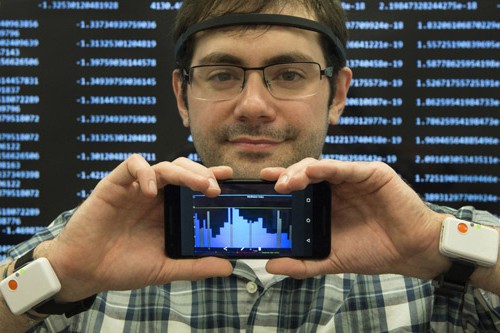
Wearable tech that could monitor biological data from study subjects
Pfizer and IBM have teamed up for an internet-of-things (IoT) collaboration that will see the partners work on a remote monitoring system for Parkinson’s patients.
They plan to bring together sensors, mobile devices, real-time analytics and machine learning to provide researchers and clinicians with real-time, around-the-clock disease status information.
The hope is that this will help inform treatment decisions and speed the development of new and better therapies.
Mikael Dolsten, president of Pfizer Worldwide Research and Development, said: “We have an opportunity to potentially redefine how we think about patient outcomes and 24/7 monitoring, by combining Pfizer’s scientific, medical and regulatory expertise with IBM’s ability to integrate and interpret complex data in innovative ways.
“The key to our success will be to deliver a reliable, scalable system of measurement and analysis that would help inform our clinical programmes across important areas of unmet medical need, potentially accelerating the drug development and regulatory approval processes and helping us to get better therapies to patients, faster.”
Wearables have piqued the industry’s interest in Parkinson’s, with UCB beginning trials of a wearable sensor in December, the Michael J Fox Foundation backing a different trial earlier this year and even Google Glass investigated at one point.
But tapping into the IoT would be a big step forward for the area. A giant network of physical objects connected to embedded electronics, software and sensors, the IoT encompasses everything from smart homes to fitness trackers.
For Pfizer and IBM the focus will be on developing an IoT system that can seamlessly measure patient indicators with the same clinical accuracy that a doctor collects in the office.
This will target health and quality of life indicators, such as motor function, dyskinesia, cognition and sleep. Daily activities like grooming, dressing and eating will also be tracked.
It’s the first step in a multi-year project that the partners anticipate will soon move into clinical testing, and they suggest it could have the potential to change how clinical trials are conducted.
Arvind Krishna, senior vice president and director of IBM Research, said: “With the proliferation of digital health information, one area that remains elusive is the collection of real-time physiological data to support disease management.
“We are testing ways to create a system that passively collects data with little to no burden on the patient, and to provide doctors and researchers with objective, real-time insights that we believe could fundamentally change the way patients are monitored and treated.”




